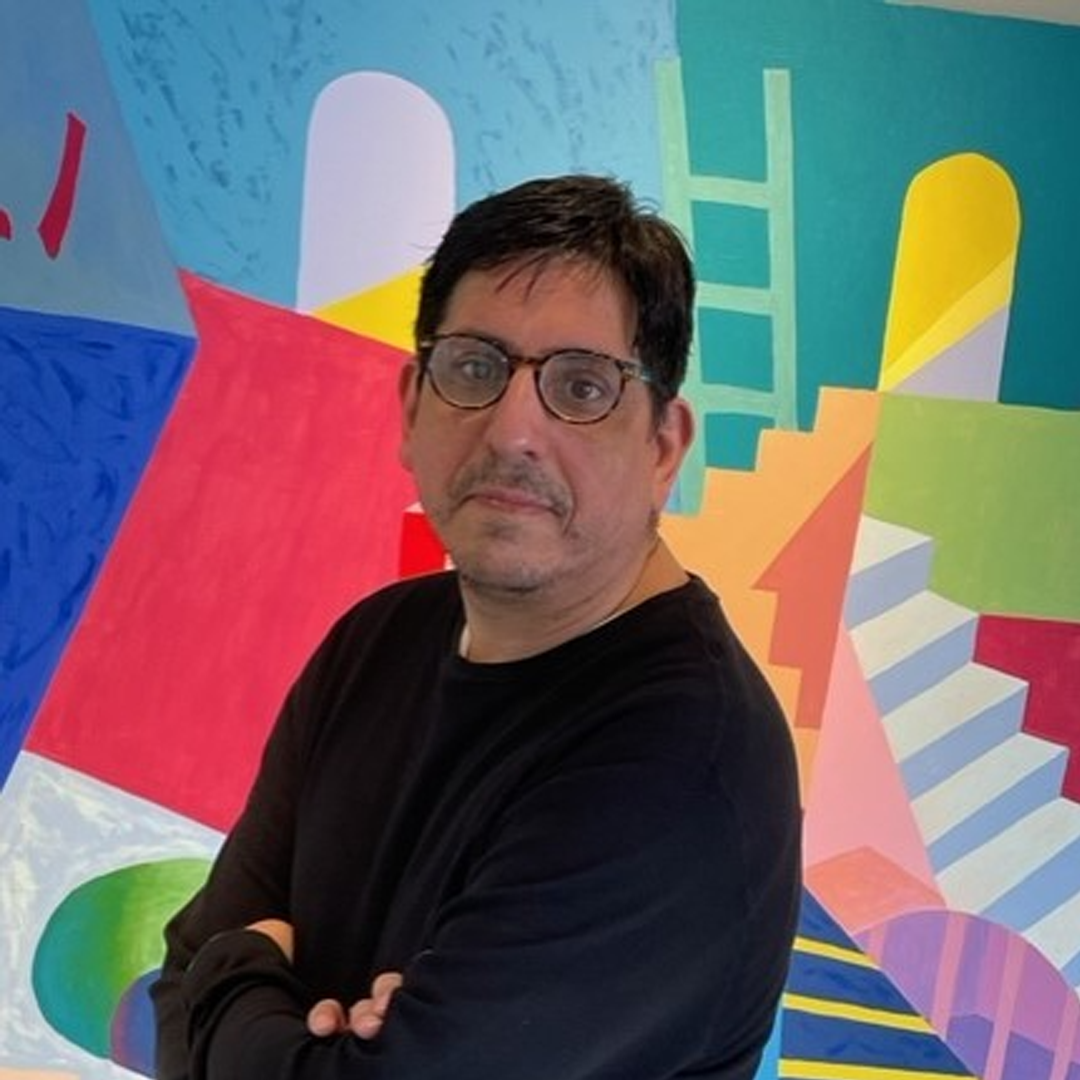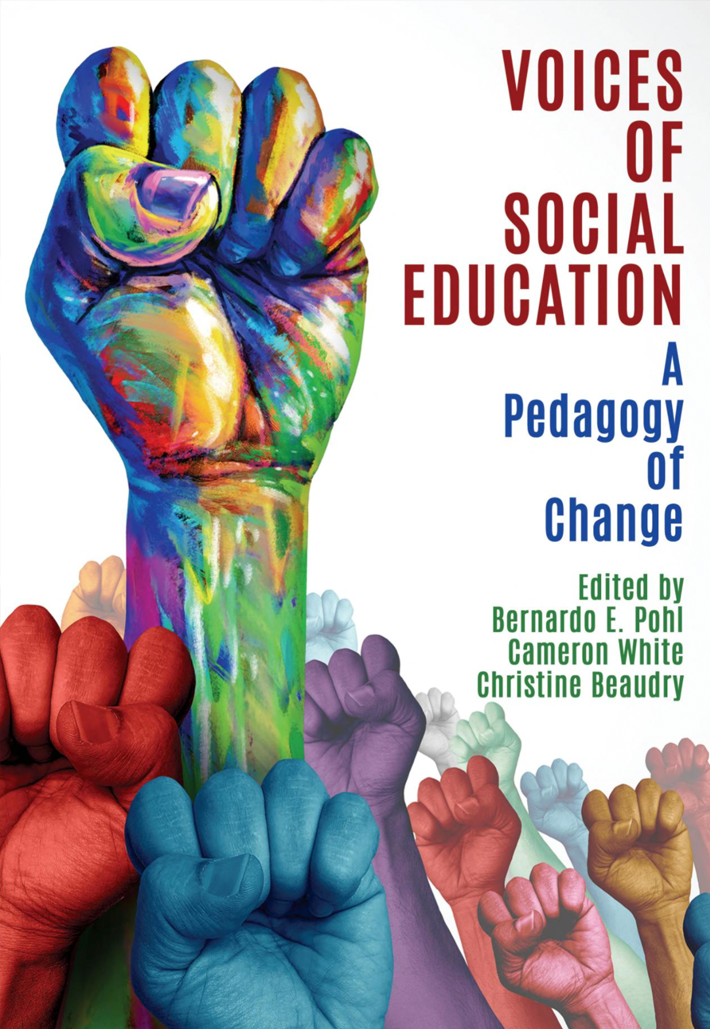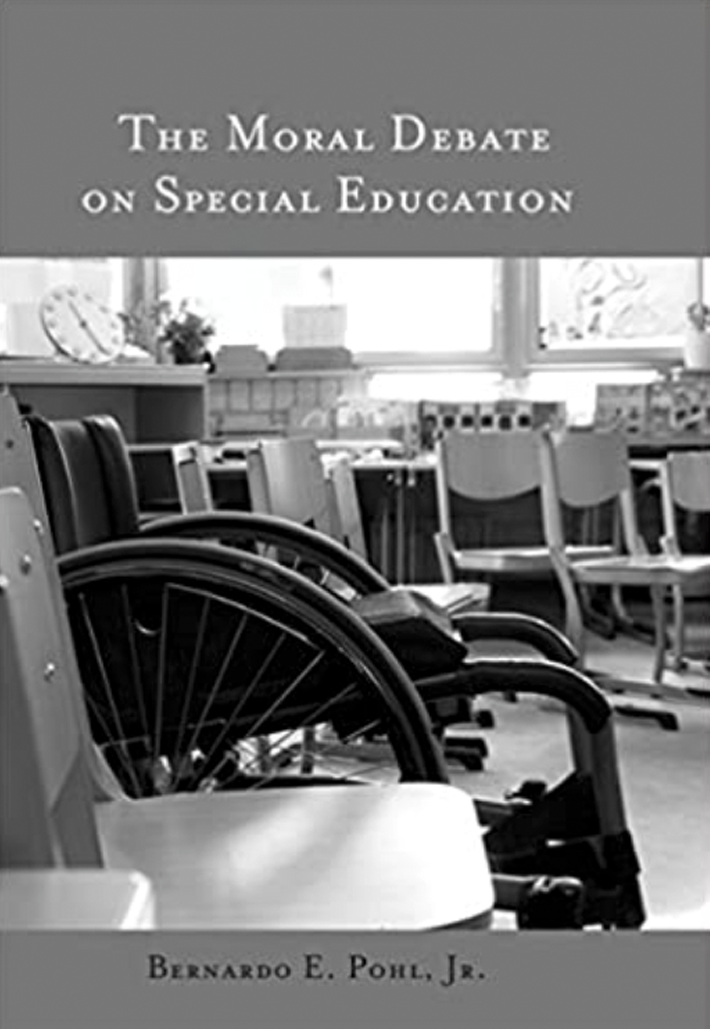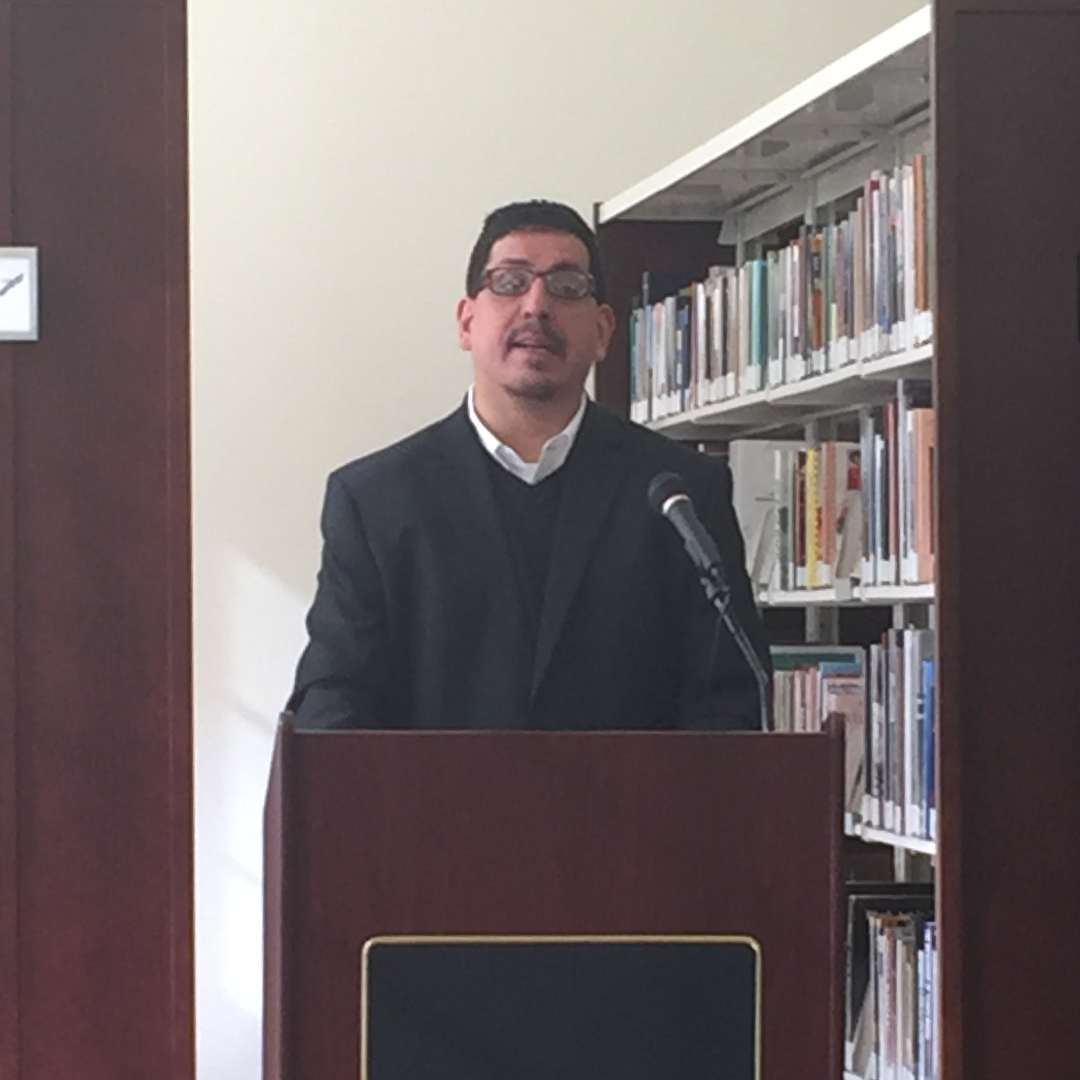
Name: Dr. Bernardo Pohl
Hometown: Houston, Texas
Major: Bachelor of Architecture, Master of Education and Doctor of Education in Curriculum
and Instruction
Graduation Year: B.Arch 1997, M.Ed 2003, Ed.D 2008
Employer: University of Houston-Downtown, Department of Urban Education
Title: Associate Professor of Social Studies Education and Disability Studies; Faculty Assessment
Coordinator
Why did you choose the Gerald D. Hines College of Architecture and Design, and what drew you to design?
I grew up in an intellectually encouraging household. Since an early age, my parents allowed my siblings and me to pursue our passions in reading, writing, drawing, and music. As a result, there were always intellectually motivating activities in my house. My Dad has always been an avid music album collector, so music was always playing in my house. My sister was an accomplished painter. Ever since I was little, I was always drawing and painting, trying to follow her footsteps. My dad is an electrical engineer and geophysicist. While growing up, I was always fascinated by watching him work with his drafting tools. As a result, I began drafting at a very early age. I still draft to this day.
In the early 1990s, the College of Architecture and Design was “the place to be.” When we moved to Houston, it became my dream to attend the architecture program at the University of Houston. It was my favorite place to visit when I went to campus with my brother, who was attending the engineering program. I simply loved the campus, and I still do. It was such an intellectually exciting place for me, and I could not get enough of it.
What was one of your favorite memories from your time on campus? Was there a particular professor who influenced your education?
I have many fond memories of my time at the College as an undergraduate student. Studio life with Cord Bowen, David Culoty, Jayson Beltran, Danny Chin, Roxane Ramos, and the rest of the group was an unforgettable experience. I still remember our time together. It was so exciting to attend the courses of professors such as David Thadeus, William “Bill” Stern, Leonard Bachman, Stephen Fox, and Larry Bell. They were genuinely inspiring individuals.
While I was pursuing my passion for architecture, I was also getting a minor in History. I loved attending history classes. I took several classes with Dr. Emilio Zamora, currently at UT-Austin, Dr. Susan Kellog, and Professor Robert Buzzanco. However, I was doubtful about pursuing a minor in history. I was not pursuing a minor in CAD or construction management like the rest, and it did make me uncomfortable at times. One day, when Professor Bachman and I were going over my degree plan, I mentioned how doubtful I was about pursuing a history minor. He replied by saying, “Are you coming to school to be educated or simply trained?” Those words meant everything to me.
Nora Laos was one of my major influences. I did not have Dr. Laos as a student, but her work in architectural history fascinated me. For the first time, I saw a bridge between my two passions: history and architecture. Over the years, we became good friends, and her work became a significant influence in my career.
What has been your career path since graduation? Where are you currently working and in what capacity?
I did not become an architect. Instead, my life took me in a totally different direction, and I became a teacher. I want to say that I became a teacher by necessity. However, eventually my motivation was more than that. Public education always fascinated me, and when the opportunity to teach became available to me in the late 1990’s, I took it. Through the College of Education, I became a doctoral student of my mentor and dear friend, critical pedagogue and social educator, Dr. Cameron White (now retired). My methodologist was Canadian narrative inquirer, Dr. Cheryl Craig. Their work in social justice and equity became a big influence for me during my doctoral work. They encouraged me to think differently about education, allowing me to become aware of the inequalities of the disabled in public schools. I am disabled. I was born with cerebral palsy. I never had a chance to explore what my disability truly meant until later in my adult life. It is through Drs. White and Craig’s work that I was able to do that, and why becoming a special education teacher was so important to me.
For 15 years, I worked in public education in several capacities: after school tutor, substitute teacher, and teacher of record. Since the beginning, my mission has been to provide a meaningful experience for the less fortunate, which is what defined my teaching career.
In 2009, I started to teach as an adjunct at the University of Houston-Downtown, and in 2013, I became an Assistant Professor for the Department of Urban Education. Today, I am an Associate Professor working in the teacher preparation program, currently teaching social study method courses.
What is one accomplishment of your career of which you are particularly proud? How do you feel the College prepared you for this?
The College of Architecture and Design was instrumental in my life. Even if I did not choose to be an architect, it was where the seed to pursue a meaningful life was planted in me. I was not a particularly good student. As a matter of fact, I was about to fail my fourth year. One day, Professor Larry Bell took me to his office to have an honest conversation about what I wanted to do. During this conversation I realized a college degree was more than a profession; it was about pursuing my dreams.
The most valuable lesson I learned at the Hines College was to look at life three-dimensionally, especially public education. Architects not only design buildings. They are problem solvers. Some of the biggest problems in any given industry are solved by architects or someone with an architecture background. Teacher education tends to be very one-dimensional. I do not think I would have been able to bring the level of creativity to my students that I do without the valuable lessons I learned in the studio.
I am most proud of having the chance to work with new teachers to be their very best as they start their careers. Teaching in public schools is not a highly regarded profession. I went to teach social studies and special education at my former school district, while many of my friends went to work at some of the most prestigious architecture firms in the country and the world. For a long time, I resented that, and many criticized me. I was not moving to New York, Los Angeles, or San Francisco to work at a prestigious architecture studio under the wings of a famous architect. I was going back to teach with some of my former schoolteachers. When I became a teacher, the principal at my first school was my former eight grade PE coach. As I look back, my first few years as a teacher were the most exciting years in my life. If there is a moment in my life I would relive again, it would be my first two or three years of teaching.
As my education career took off, I started to collaborate with some of the best minds in education, including the late Joe Kincheloe, renowned Freiran scholar and critical pedagogue. Joe Kincheloe sponsored my first book, The Moral Debate in Special Education. To this day, I can continue to collaborate with Dr. White and Craig, renowned international scholars, who taught me how to be an academic. Dr. Denise McDonald at UH-Clear Lake has been instrumental in helping me establish my research and publishing agenda in narrative inquiry and disability studies. In the end, it is because of them I am at the place I am today.
I am most proud to have chosen a career that has allowed me to make a difference in my student’s life. Nothing has been more rewarding for me than to work with future teachers. The energy of a new and young teacher can be truly captivating. However, it was not supposed to be that way. I was dead set on becoming the next Frank Lloyd Wright or Mies Van der Rohe. While at the Hines College I was determined to become the next Larry Bell, Bill Stern, Thomas Colbert, Burdette Keeland, Rafael Longoria, or Patrick Peters. Life took me on a different path and gave the chance to advocate for those who do not have a voice. In hindsight, I would not have had it any other way.
My proudest moments are not the many awards, editorial posts, or academic recognitions I have received. My proudest moment is not my current position in academia. My proudest moments are watching my students become star teachers on their merit, and witnessing how they make a difference in their student’s life. This is the accomplishment that makes me the proudest – watching my students succeed.
The lesson I learned from my time at the College was to pursue my dreams. I will always cherish each professor who taught me this. Even if your dreams take you away from architecture, there is a place for you to make an impact in this world. My advice to those in the College is to make the most out of it and pursue your dream. The vast opportunities within the College make this a special place within the UH-System. Enjoy it!
|
Voices of Social Education (Information Age Publishing, 2021). An edited collection of essays from authors discussing
issues of social justice, equity, and inclusion in the classroom. |
The Moral Debate on Special Education (Peter Lang Publishing, 2013). Publication of Pohl's dissertation, discussing impending moral issues of equity and social justice in special education. |
|
Pohl presenting a lecture at the African American Library, Gregory School, 3rd Ward, Houston. |


